#Harari Region
Text
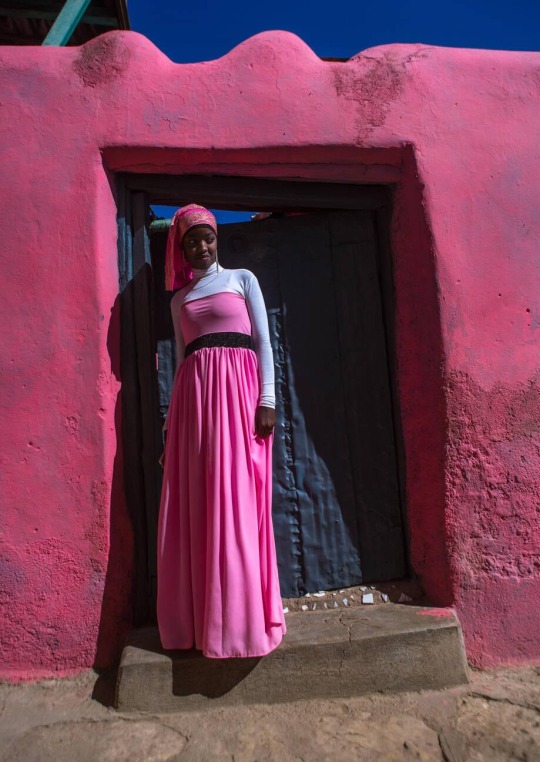

“Beautiful girl in pink in the street of the old town, Harari region, Harar, Ethiopia.”
Photographed by Eric Lafforgue, 2015.
101 notes
·
View notes
Text

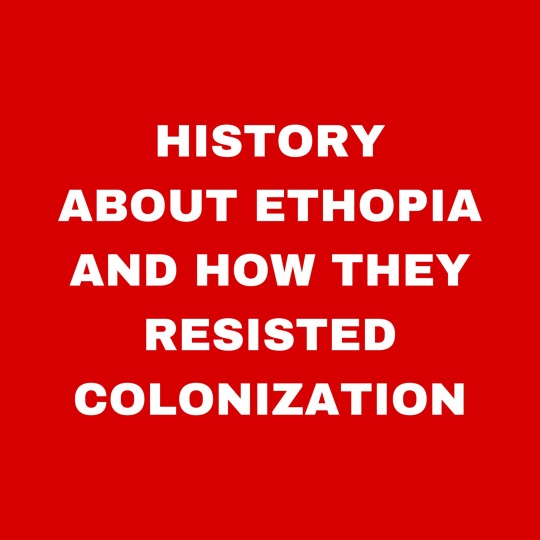
This is a message to my black brothers and sisters
Learn about your history
Ethiopia is one of the oldest countries in Africa; the emergence of Ethiopian civilization dates back thousands of years. Abyssinia or rather "Ze Etiyopia" was ruled by the Semitic Abyssinians (Habesha) composed mainly of the Amhara and Tigray, the Cushitic Agaw. In the Eastern escarpment of the Ethiopian highlands and more so the lowlands was the home of the Arab-descended Harari that founded Sultanates such as Ifat and Adal and the Afars. In the central and south were found the ancient Sidama and Semitic Gurage, among otheres. One of the first kingdoms to rise to power in the territory was the kingdom of D'mt in the 10th century BC, which established its capital at Yeha. In the first century AD the Aksumite Kingdom rose to power in the modern Tigray Region with its capital at Aksum and grew into a major power on the Red Sea, subjugating South Arabia and Meroe and its surrounding areas. In the early fourth century, during the reign of Ezana, Christianity was declared the state religion. Ezana's reign is also when the Aksumites first identified themselves as "Ethiopians", and not long after, Philostorgius became the first foreign author to call the Aksumites Ethiopians.[The Aksumite empire fell into decline with the rise of Islam in the Arabian peninsula, which slowly shifted trade away from the Christian Aksum.[citation needed] It eventually became isolated, its economy slumped and Aksum's commercial domination of the region ended.The Aksumites gave way to the Zagwe dynasty, who established a new capital at Lalibela before giving way to the Solomonic dynasty in the 13th century. During the early Solomonic period, Ethiopia went through military reforms and imperial expansion that allowed it to dominate the Horn of Africa.
How did Ethiopia Resist Imperialism?
Ethiopia, formerly Abyssinia, is one of the world’s oldest countries. Dating to around 400 BCE, the region is documented in the in the King James Version of the Bible as the Kingdom of Axum. Along with Rome, Persia, and China, Axum was considered one of the four great powers of the era. Throughout the millennia of its history, the willingness of the country’s people—from farmers to kings—to come together as one, coupled with its geographic isolation and economic prosperity, helped Ethiopia score decisive victories against a series of global colonialist forces.
Ethiopia is considered “never colonized” by some scholars, despite Italy's occupation from 1936–1941 because it did not result in a lasting colonial administration.
Seeking to expand its already considerable colonial empire in Africa, Italy invaded Ethiopia in 1895. In the ensuing First Italo-Ethiopian War (1895-1896), Ethiopian troops won a crushing victory over Italian forces at the Battle of Adwa on March 1, 1896. On October 23, 1896, Italy agreed to the Treaty of Addis Ababa, ending the war and recognizing Ethiopia as an independent state.
On Oct. 3, 1935, Italian dictator Benito Mussolini, hoping to rebuild his nation’s prestige lost in the Battle of Adwa, ordered a second invasion of Ethiopia. On May 9, 1936, Italy succeeded in annexing Ethiopia. On June 1 of that year, the country was merged with Eritrea and Italian Somalia to form Africa Orientale Italiana (AOI or Italian East Africa).
Ethiopian Emperor Haile Selassie made an impassioned appeal for assistance in removing the Italians and re-establishing independence to the League of Nations on June 30, 1936, gaining support from the U.S. and Russia. But many League of Nations members, including Britain and France, recognized Italian colonization.
It was not until May 5, 1941, when Selassie was restored to the Ethiopian throne, that independence was regained.
Ethiopia's ability to resist being swept up in the "Scramble for Africa" can be credited to the stability of its longstanding imperial government, beginning with the Abyssinian Empire in the 13th century, and lasting into the late 20th century, with the exception of a brief Italian occupation during the 1930s. King Menelik II, the Emperor during the period of rampant European exploration and colonization in Africa, was careful to cultivate an alliance with the smaller surrounding kingdoms of North Africa, and with European powers including Italy and Russia. When Italy began to turn the sights of their imperial ambitions toward Ethiopia, the Ethiopian military became the only African kingdom able to successfully resist the military might of European colonial power, using Russian-supplied weapons to defeat the Italian invading force at the Battle of Adwa in 1896. In the aftermath of the battle, in exchange for permanent recognition as an independent empire, Menelik II granted Italy the right to claim the neighboring territory of Eritrea under their imperial umbrella.
Ethiopians have a history of taming lions.
Many Emperors kept pet lions including Halie Selassie. Occasionally visitors like Kwame Nkrumah could pet one of the lions!
This practice of keeping lions is said to date back thousands of years to the Axumite period.The descendants of the Royal Lions currently live in the Addis Ababa zoo.
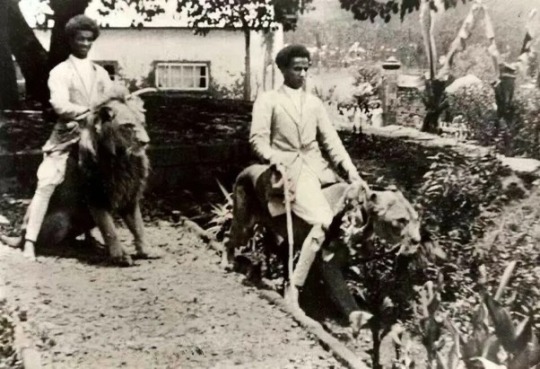
Meet his imperial majesty, the King of the Jungle.
And if, with his thick, shaggy mane Challa seems to have something of a frisky regal air about him - it's because he knows that he is a genuine blue blood.Challa is a direct descendant of Mochuria and Mollua - royal lions, which the late Emperor Haile Selassie kept as pets. The Emperor's practice of keeping pet lions is said to date thousands of years back to the Axumite period.Years ago in Ethiopia, Lions were pets to the people, some were used like donkeys, some like dogs kept at home. Emperor Haile Selassie of Ethiopia had lions he kept as pets, while some Ethiopians could even ride on them. These were not wild lions, they grew up with humans and became domesticated.They didn't go after human blood or other animals, lions roamed around the streets of Ethiopia and live was beautiful with them. Ethiopia is in East Africa, it's a rugged, landlocked country split by the Great Rift Valley, Ethiopia is a place of ancient culture, they believe and still hold on to ancient affairs.
Any lion that goes wild was immediately hunted killed, they were only killed if they kill a human and not animals like goats and chickens. They forbid killing and eating of any lion because lions were pets used in different palaces.
Ethiopia as a country had its origin in about 980 B.C., which makes it one of the oldest nations in the world.
Due to this very long history and an unmatched diversity of people and cultures, the country has often been described as a “museum of peoples”. With such a highly diverse population, Ethiopia houses an intricate tapestry of language and ethnic groups.
Also nicknamed the “Land of 13 Sunshine’s”, Ethiopia is often described as one of the most enthralling and enchanting places in the world – and definitely in Africa.
Ethiopia may not be the first place any traveller think of when planning or booking a next holiday, but it may just as well soon be the case. As African country Ethiopia can boast about having been at peace for at least the previous 15 years or more years and its economy is consequently one of the fastest growing in the world.
With the added bonus of an astounding diversity of landscapes, mixture of cultures and history that tracks back to when homo sapiens first started to raise itself up onto two legs, a traveller suddenly may look forward to a surprising and breath-taking travel destination.
But talking about planning and holiday dated, you probably didn’t know that this unique nation even has its own calendar?
This is but one of a myriad fascinating facts about the country, of which a number are discussed in this article. Looking at the country’s ancient and statutory history, its religion, culture, people and natural phenomena, here are at least 44 random but fascinating facts that you can ponder in anticipation of a visit to this eastern African country in the near future:
Fact number 1 – The oldest people in the world probably lived here.
Fact number 2 – Ethiopia is the oldest independent country in Africa and the only African country that could evade colonial rule.
Fact number 3 – Ethiopia was one of the first African forces to achieve a significant victory over a European colonial power.
Fact number 4 – Ethiopia has a rich history of rulers, including emperors and queens.
Fact number 5 – Ethiopia is perceived to be the diplomatic capital of the African continent
Fact number 6 – Ethiopia is the country with the second highest population in Africa, and with almost 1,5 % of the world population.
Fact number 8 – Ethiopia has the most orphans in the world.
Fact number 10 – Addis Ababa is the highest capital city in Africa.
Fact number 11 – More than 200 dialects are spoken by the peoples of the country.
Please like and share so others can see, drop your comments below and let me know what you think.
98 notes
·
View notes
Text

Jerusalem, right now.
[Eric Alterman]
* * * * *
We're now seeing the final hours of Israeli democracy. Yuval Noah Harari:
To understand events in Israel, there is just one question to ask: what limits the power of the government? Robust democracies rely on a whole system of checks and balances. But Israel lacks a constitution, an upper house in the parliament, a federal structure or any other check on government power except one — the Supreme Court.
This Monday, the Netanyahu government plans to pass the first in a series of laws that will neutralise the Supreme Court. If it succeeds, it will gain unlimited power. Members of the Netanyahu coalition have already disclosed their intention to pass laws and pursue policies that will discriminate against Arab people, women, LGBTQ people and secular people. Once the Supreme Court is out of the way, nothing will remain to stop them. In such a situation, the government could also rig future elections, for example by banning Arab parties from participating — a step previously proposed by coalition members. Israel will still hold elections but these will become an authoritarian ritual rather than a free democratic contest. Government members openly brag about their intentions. They explain that since they won Israel’s last elections, it means they can now do anything they want. Like other authoritarian forces, the Israeli government doesn’t understand what democracy means. It thinks it is a dictatorship of the majority, and that those who win democratic elections are thereby granted unlimited power. In recent months I have talked with many Netanyahu supporters, and they genuinely believe that any restraint on an elected government is undemocratic. “What do you mean we cannot take away people’s basic liberties?” they say. “But we won the elections! That means we can do anything we want!” In fact, democracy means freedom and equality for all. Democracy is a system that guarantees all people certain liberties, which even the majority cannot take away.
The establishment of a dictatorship in Israel would have grave consequences not only for Israeli citizens. The ruling coalition is led by messianic religious zealots who believe in an ideology of Jewish supremacy. This calls to annex the occupied Palestinian territories to Israel without granting citizenship to the Palestinians, and ultimately dreams of destroying the al-Aqsa mosque compound — one of Islam’s holiest sites — and building a new Jewish temple in its stead. Jewish supremacy is not a fringe notion. It is represented in the coalition by the Jewish Power party and the Religious Zionism party. Finance minister Bezalel Smotrich (from the latter) has recently called to wipe out an entire Palestinian town in retaliation for the killing of two Jewish settlers.
Men like Smotrich now command one of the most formidable military machines in the world, armed with nuclear and advanced cyber weapons. For decades the prime minister, Benjamin Netanyahu, has waged a campaign to stop Iran from going nuclear, warning the world about the dangers posed by a fundamentalist regime with nuclear capabilities. Now Netanyahu is establishing exactly such a regime in Israel.
This could set fire to the entire Middle East, with consequences that will reverberate far beyond the region. It would be incredibly stupid of Israel to do something like that, but as we learnt from Russia’s invasion of Ukraine, we should never underestimate human stupidity. It is one of the most powerful forces in history. The good news is that in recent months a powerful resistance movement has emerged to save Israeli democracy. Rejecting the ideology of Jewish supremacy, and connecting to ancient traditions of Jewish tolerance, hundreds of thousands of Israelis are demonstrating, protesting and resisting in every nonviolent way we know. Since Friday, more than 10,000 army reservists — including hundreds of air force pilots, cyber warfare experts, and commanders of elite units — have publicly declared that they will not serve a dictatorship, and that they will therefore suspend their service if the judiciary overhaul continues. By this Tuesday, the famed Israeli air force — which relies to a large extent on reservists — may be partially grounded.
To appreciate the magnitude of this step, it should be recalled that military service is a sacred duty for many Israelis. In a country that emerged from the ashes of the Holocaust, and that has faced existential threats for decades, the army has always been off-limits in political controversies. This is no longer the case. Former chiefs of the Israeli army, air force and security services have publicly called on soldiers to stop serving. Veterans of Israel’s many wars are saying this is the most important struggle of their lives. The Netanyahu government tries to depict this as a military coup, but it is the exact opposite. Israeli soldiers aren’t taking up arms to oppose the government — they are laying them down. They explain that their contract is with the Israeli democracy, and once democracy expires — so does their contract.
The feeling that the social contract has been broken has also led universities, labour unions, high-tech companies and other private businesses to threaten more strikes if the government continues with its antidemocratic power-grab. Israelis understand the potential damage to our country. As the so-called Start-Up Nation is closing down, investors around the world are pulling money out. The internal damage is even greater. Fear and hatred now dominate relations between different sections of society, as the social contract is ripped to shreds. Government members call the demonstrators and army reservists “traitors”, and demand that force be used to crush the opposition. Israelis worry that we might be days away from civil war. But the hundreds of thousands of us protesting in the streets feel we have no choice. It is our duty to ourselves, to Jewish tradition and to humanity to prevent the rise of a Jewish supremacist dictatorship. We are standing in the streets, because we cannot do otherwise if we are to save Israeli democracy.
[Israeli Democracy Is Fighting For Its Life :: Financial Times]
14 notes
·
View notes
Photo
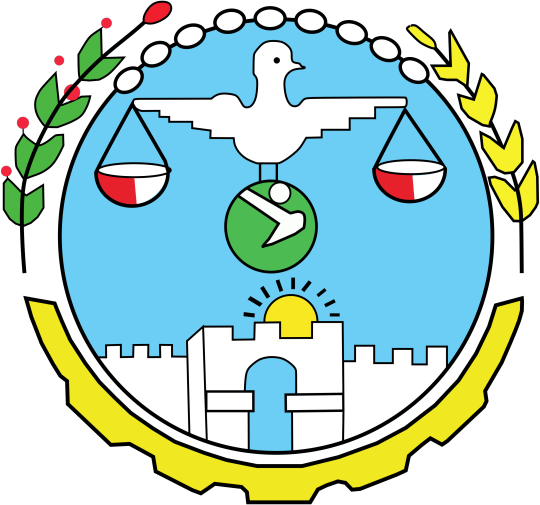
Seal of the Harari Region, Ethiopia
19 notes
·
View notes
Text

“To hack a human being is to understand what's happening inside you on the level of the body, of the brain, of the mind so that you can predict what people will do.”
In their interview, Yuval Noah Harari and Tristan Harris describe how corporations “aim a supercomputer directly at you” in order to influence or “hack” your future behavior. This could come in the form of trying to sell you a product, making you watch another video, or getting you to stay on an app for another ten minutes.
What computers are especially good at when compared to humans is storing and collecting massive datasets. A computer’s working memory is essentially as big as the server a company is willing to pay for, and as a result, it is able to study massive amounts of historical human patterns on the Internet and then go on to make predictions based off of it. And the reality is, we constantly opt in to feeding these supercomputers even more data.
A great example of this is the Apple Health app. Marketed as an app to give you individualized feedback on your daily health habits, upon further examination, it can also be seen as an extremely invasive data collection tool. By the simple virtue of the fact that we take our phone everywhere we go, the Health app has access to an extremely intimate data point: our physical location everywhere we go. It quite literally tracks our every single step.
Sure, it is nice to get a daily reminder to get our steps in, but at the same time, it is scary to think of the ways in which the data we give up on an everyday basis can be used to manipulate us. Just as a 19 year old student, I can imagine plenty of ways in which Apple could use our Health data to influence our future decisions. For example, by looking at all of its users in aggregate, Apple could identify regions of the United States that get heavier foot traffic than others, perhaps an optimal place to build a new Apple Store. Apple could also identify “more active” individuals and send them more ads for their fitness products such as the Apple Watch.
Technology has increasingly commoditized the human future. And by blindly embracing technologies as “innovations” instead of questioning the ethical implications behind them, we endanger ourselves to getting hacked.
2 notes
·
View notes
Text
3 TRIBES
In my research into High-Latitude Regions, including areas like Alaska, Canada, Scandinavia, and Russia, I discovered that they experience long periods of darkness during winter. While not as extreme as the polar regions, these locations can have significantly reduced daylight hours during the winter months. This research inspired me to explore potential survival strategies for humans in such conditions. Drawing inspiration from these regions and Yuval Noah Harari's book 'Sapiens,' I expanded my storyline to include three main tribes—the sole survivors of the apocalypse. These tribes became the focal point of my project, guiding my research and shaping the theme of my work.
0 notes
Text
Lectra appoints Antonella Capelli as President of the EMEA region

Lectra, leader in technology solutions accelerating the transition to Industry 4.0 for the fashion, automotive, and furniture industries, announces the appointment of Antonella Capelli as President of the Europe, Middle East, and Africa (EMEA) region, effective May 1, 2024. Already a member of the Executive Committee since January 1, 2024, Antonella Capelli takes over from Fabio Canali, who is retiring.
Lectra currently operates in 74 countries in the EMEA region, with over 500 employees in 17 locations and 4,000 customers. At the forefront of digital transformation, the EMEA region, which accounted for 33% of the group sales in 2023, has always been a driving force for Lectra, which continuously propels the deployment of its new offers dedicated to Industry 4.0 there.
“On behalf of all Lectra teams, I would first like to extend my warmest thanks to Fabio Canali for his exceptional investment since he joined Lectra, twenty years ago. Fabio brilliantly guided our team in Italy, then in Southern Europe and North Africa, where together, they delivered outstanding performance. His leadership and expertise have been essential to the success of numerous offers launched over the past decade”, says Daniel Harari, Chairman and Chief Executive Officer of Lectra. “I am particularly pleased that Antonella Capelli is taking over to continue Lectra's development in the EMEA region. For over ten years, she has demonstrated her excellent understanding of our customers' challenges, and her ability to accelerate the company's growth in this region. I have no doubt that Antonella will make a very positive contribution to the Industry 4.0 transition of the companies that place their trust in us in Europe, the Middle East and Africa.”
Antonella Capelli began her career at IBM Global Business Services, in IT project management, digital innovation, and consultative sales for the fashion market. In 2013, she joined Lectra as a Professional Services Manager for Italy. She then moved into a sales role in 2017, gradually increasing her responsibilities in Italy and the Southern Europe and North Africa region. She holds a master's degree in management and production engineering from the University of Milan-Politecnico (Italy).
"I am particularly honored and excited to be able to support Lectra's success in a region where our customers' challenges can be very diverse”, says Antonella Capelli. “I'm looking forward to working closely with all EMEA teams to provide solutions that will enable players in the fashion, automotive, and furniture industries to pursue their digital transformation. My ambition is to foster our collective success.”
0 notes
Text
"Unlocking the Secrets of World War 3: Explore Yuval Noah Harari's Mind-Blowing Cautionary Tale"
Israeli writer and historian Yuval Noah Harari has expressed concerns about the potential for the Israel-Gaza war to escalate into a wider regional conflict, potentially leading to a Third World War. In an exclusive interview with NDTV, Harari discussed the global instability that has been fueled by events such as the COVID-19 pandemic and the war in Ukraine. According to Harari, this instability…

View On WordPress
0 notes
Text
"Unlocking the Secrets of World War 3: Explore Yuval Noah Harari's Mind-Blowing Cautionary Tale"
Israeli writer and historian Yuval Noah Harari has expressed concerns about the potential for the Israel-Gaza war to escalate into a wider regional conflict, potentially leading to a Third World War. In an exclusive interview with NDTV, Harari discussed the global instability that has been fueled by events such as the COVID-19 pandemic and the war in Ukraine. According to Harari, this instability…

View On WordPress
0 notes
Text
"Unlocking the Secrets of World War 3: Explore Yuval Noah Harari's Mind-Blowing Cautionary Tale"
Israeli writer and historian Yuval Noah Harari has expressed concerns about the potential for the Israel-Gaza war to escalate into a wider regional conflict, potentially leading to a Third World War. In an exclusive interview with NDTV, Harari discussed the global instability that has been fueled by events such as the COVID-19 pandemic and the war in Ukraine. According to Harari, this instability…

View On WordPress
0 notes
Video
youtube
Yuval Noah Harari on CNN Amanpour - Hamas' aim was 'to assassinate any
COMMENTARY:
Israel needs to understand that it is preparing to reprise the battle of Verdun from the German perspective.
It is a stupid idea.
For all intents and purposes, Netanyahu and his Orthodox constituency are the legacy of the Zealots who burned the food stores in Jerusalem in 70 based on the stupid idea that it would force a fight spirit against Rome.
Just for the record. Edward Snowdon should Hamas the back door past Israeli intelligence.
Abdullah II is the center of gravity for regional peace. .
0 notes
Video
Cute ethiopian girl in front of a purple wall, Harari Region, Harar, Ethiopia by Eric Lafforgue
Via Flickr:
© Eric Lafforgue www.ericlafforgue.com
#Africa#Children#Color image#Copy space#Day#Developing country#East africa#Ethiopia#Ethiopia237249#Girls#Harar#Head and shoulders#Horn of africa#Looking at camera#One girl only#One person#Outdoors#Portrait#Purple#Real people#Street#Town#Traditional clothing#Travel destinations#Unesco world heritage site#Vertical#Vibrant color#Harari Region#flickr
0 notes
Photo
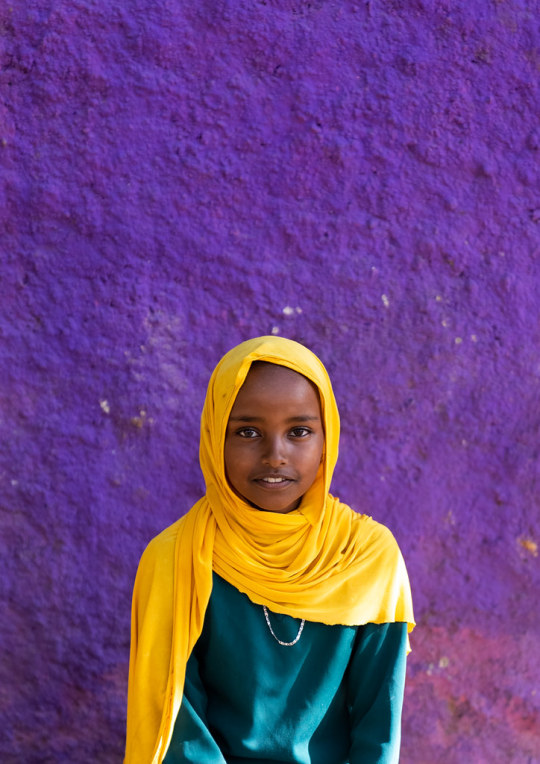
Cute ethiopian girl in front of a purple wall, Harari Region, Harar, Ethiopia by Eric Lafforgue https://flic.kr/p/2oCurif
1 note
·
View note
Text
An ancient plain that has lain untouched for thousands of years is being discovered in Somalia, offering archaeologists a unique window into the region's past.
The Dhagah Kureh plain, located in the remote region of Puntland, is believed to be an ancient human settlement dating back to at least the Iron Age. The plain, which is roughly the size of a football field, is covered with ancient stone tools and pottery, indicating that the area was once home to a thriving community.
The discovery was made by a team of archaeologists from the Somali Heritage and Culture Authority. The team was searching for ancient sites in the area and came across the plain while exploring the region.
The plain is believed to have been a thriving community for thousands of years. It is thought to have been home to a number of different cultures, including the Somali, Harari, and Bedouin.
The plain is a unique find, as it offers a glimpse into the lives of the people who once lived in the area. It is also an important reminder of the long and varied history of the Somali people.
The team of archaeologists is now working to better understand the plain and the people who lived there. They are examining the stone tools and pottery to determine the age and purpose of the artifacts, as well as studying the structure of the buildings on the plain.
The findings will provide valuable insight into the lives of the ancient people who lived in the area, and could potentially shed light on the history of the region. It is also hoped that the discovery will help to preserve the region's cultural heritage.
0 notes
Text
Why did only Sapiens survive?
Until a few years ago, scientists favored a simple explanation: H. sapiens arose relatively recently, in more or less its current form, in a single region of
For More- Sapiens: A Brief History of Humankind by Yuval Noah Harari
Africa and spread out from there into the rest of the Old World, supplanting the Neandertals and other archaic human species it encountered along the way.
0 notes
Photo

Areas where Agriculture had been discovered independent of outside influences (from Sapiens by Yuval Noah Harari)
The origins of agriculture are not attributed to a single location or culture, but rather emerged independently in multiple regions of the world. The earliest evidence of agricultural practices dates back to around 10,000 years ago, during the Neolithic period, in several regions including the Fertile Crescent (modern-day Middle East), the Yangtze and Yellow River basins (modern-day China), and Mesoamerica (modern-day Mexico and Central America).
In the Fertile Crescent, an area that spans from modern-day Egypt to Iran, early humans domesticated crops such as wheat, barley, and legumes, as well as domesticated animals such as sheep, goats, and cattle. In China, the ancient people cultivated rice, millet, and other crops, while in Mesoamerica, maize (corn), beans, and squash were domesticated.
688 notes
·
View notes